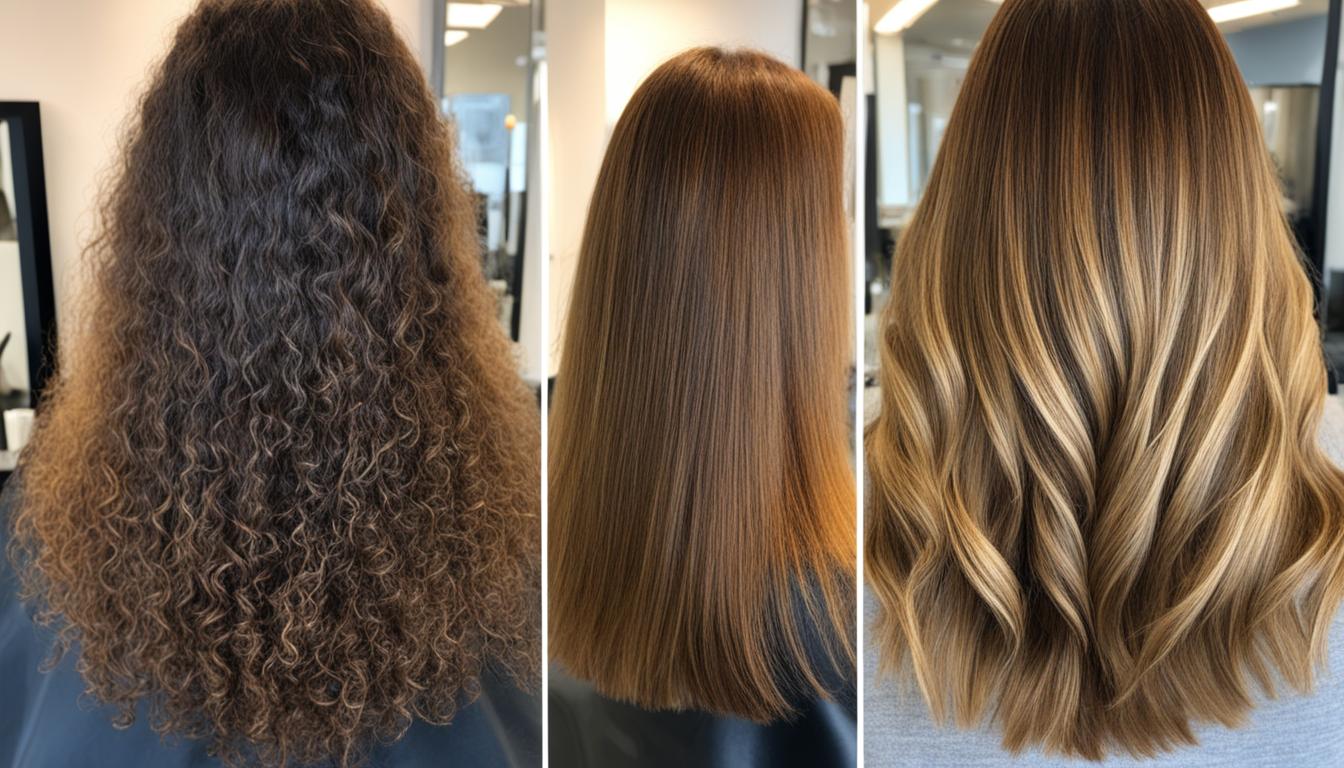To enhance communication in the salon, embrace empathy and validation as essential tools. Connect with clients by understanding their feelings and experiences. Show compassion to build trust and loyalty. Validating clients' emotions is vital for fostering trust and reducing misunderstandings. Create a supportive environment where clients feel valued and heard. Prioritize empathy to boost satisfaction and retention. Actively listen, validate feelings, and maintain professionalism to strengthen client relationships effectively. Acknowledge emotions to build rapport and enhance satisfaction. By prioritizing empathy and validation, you create a space where clients feel understood and valued, leading to more meaningful interactions.
Key Takeaways
- Empathy fosters connections by understanding clients' feelings.
- Validation of emotions shows respect and builds trust.
- Creating a supportive environment enhances client satisfaction.
- Active listening and empathy improve client relationships.
- Acknowledging and validating emotions lead to meaningful interactions.
Importance of Empathy in Communication
Understanding the significance of empathy in communication is essential for creating meaningful connections with clients in the salon.
Empathy involves more than just listening; it's about truly understanding and acknowledging your clients' feelings and experiences. By showing compassion and empathy towards your clients, you can build trust and establish a strong bond that goes beyond just providing a service.
Research indicates that when salon professionals demonstrate empathy in their interactions, clients aren't only more satisfied but also more likely to become loyal patrons and refer others to your salon.
Empathy in communication fosters an environment of trust and support, making clients feel valued and heard. It helps in building stronger relationships and enhancing the overall client experience.
Building Trust Through Validation

To cultivate trust and deepen client relationships in the salon, acknowledging and accepting clients' emotions as valid is paramount. Validation is a powerful tool that can help you connect with your clients on a deeper level.
When you validate your clients' feelings, you show them that you understand and respect their emotions. This simple act can go a long way in building trust and creating a supportive environment in your salon.
Creating a Supportive Environment

Creating a supportive environment in the salon is essential for fostering strong client relationships and enhancing overall satisfaction. When you prioritize empathy and validation, you create a safe space where clients feel understood and valued.
This supportive atmosphere not only boosts client satisfaction but also increases loyalty to your salon. By showing empathy and providing validation, you allow clients to express their needs and emotions freely, leading to a more enriching client experience.
Trust and communication flourish in a supportive salon environment, enhancing the overall quality of service you provide. Clients appreciate feeling heard and supported, making them more likely to return and recommend your salon to others.
Enhancing Customer Satisfaction

Enhance customer satisfaction in the salon by prioritizing empathy and validation in your communication with clients.
When you show empathy by understanding and acknowledging your clients' feelings, you create a strong connection that fosters trust.
Validating their emotions as real and important helps reduce misunderstandings and conflicts, leading to a more positive salon experience.
By implementing these empathy and validation techniques, you can greatly boost customer satisfaction and improve client retention.
Remember, it's not just about providing a service; it's about building relationships based on understanding and connection.
When clients feel heard and valued, they're more likely to return and recommend your salon to others.
So, take the time to listen, empathize, and validate their feelings—it will go a long way in creating a welcoming and satisfying environment for everyone.
Trust the process, and watch as your salon flourishes with happy and loyal customers.
Establishing Client Rapport

Build trust and foster a welcoming atmosphere by actively listening to your clients' needs when establishing client rapport in the salon. Creating a comfortable environment where clients feel valued and understood is essential. Engage in genuine conversations, show empathy, and maintain professionalism to strengthen client rapport effectively. By demonstrating active listening skills, you can make clients feel heard and cared for, enhancing their overall salon experience.
To help you visualize the importance of establishing client rapport, here is a breakdown of key elements:
| Key Elements | Description |
|---|---|
| Trust | Establishing trust through genuine interactions |
| Comfortable Environment | Creating a welcoming space for clients |
| Active Listening | Attentively listening to clients' needs |
| Genuine Conversations | Engaging in authentic and meaningful talks |
| Professionalism | Demonstrating professionalism in all interactions |
Demonstrating Understanding and Care

To truly connect with your clients in the salon, it's essential to show genuine interest in their concerns, acknowledge their feelings, and practice active listening. By demonstrating understanding and care through these actions, you can create a supportive and empathetic environment where clients feel valued and respected.
Show Genuine Interest
Demonstrating genuine interest in your clients by actively listening and showing empathy is key to fostering trust and building long-lasting relationships in the salon. When you genuinely care about your clients and their well-being, it not only enhances the client's trust in you but also helps in building rapport and creating a positive salon experience.
By engaging in active listening during conversations with your clients, you show that you value their thoughts and feelings, which can lead to repeat business and loyalty. Clients appreciate when they feel understood and cared for, and this can result in them returning to your salon time and time again.
Additionally, when you show genuine interest in your clients, they're more likely to have a positive experience and spread the word about your salon to others, leading to potential new clients. So, remember, taking the time to show genuine interest can go a long way in creating a thriving salon environment.
Acknowledge Client's Feelings
Showing empathy towards your clients by acknowledging their feelings is an essential aspect of effective communication in the salon.
When you acknowledge your client's feelings, you're demonstrating understanding and care, which can greatly enhance their salon experience.
By validating their emotions, you're showing them that their feelings are important and valued.
This simple act can help them feel seen, heard, and respected during their time in the salon.
Creating a safe and supportive environment where clients feel comfortable expressing their emotions without judgment is key to building trust and fostering a deeper connection.
Remember, demonstrating empathy through acknowledging feelings is a powerful tool that can elevate the overall client experience.
Use Active Listening
How can you actively engage with your clients to demonstrate understanding and care in the salon setting? Active listening is key.
When you practice active listening, you show your clients that you truly care about what they've to say. It involves fully focusing on their words, understanding their concerns, and responding in a way that shows empathy and validation.
By listening attentively, you build trust with your clients, leading to greater satisfaction and a more positive salon experience overall. When clients feel heard and understood, they're more likely to return and recommend your services to others.
Active listening not only improves communication but also enhances conflict resolution and fosters loyalty among your clientele.
Fostering Meaningful Interactions

To create meaningful interactions in the salon, focus on building trust through empathy and validating your clients' experiences. By demonstrating understanding and care, you can establish a strong connection that enhances the overall salon experience.
Acknowledging and validating clients' emotions will help foster a safe and welcoming environment for open communication and mutual respect.
Building Trust Through Empathy
Empathy serves as a foundational element in fostering meaningful interactions within the salon, nurturing trust and connection with your clients. By understanding and validating their emotions and experiences, you can build a strong foundation of trust, leading to increased client satisfaction and loyalty. Personalized communication based on empathy creates a safe space for clients to express themselves freely, enhancing their overall salon experience.
To visually represent the importance of building trust through empathy, consider the following table:
| Key Points | Benefits |
|---|---|
| Understanding clients' emotions | Builds trust and loyalty |
| Validating their experiences | Increases client satisfaction |
| Personalized communication | Fosters strong connections |
| Creating a safe environment | Enhances overall salon experience |
Validating Client Experiences
Acknowledging and accepting clients' emotions as valid and real is essential for fostering meaningful interactions in the salon. By validating client experiences, you create a safe space where individuals feel heard and understood.
Here are some key points to keep in mind:
- Validating feelings doesn't mean you agree with everything the client says, but it shows empathy and support for their emotional journey.
- Creating a welcoming environment through acknowledging emotions encourages open communication and builds lasting relationships with your clients.
- Effective validation of client experiences not only promotes a positive client experience but also helps in resolving conflicts and addressing underlying issues in the salon setting.
Strengthening Client-Professional Connection

By fostering empathy and validation in your communication at the salon, you can greatly enhance the connection between you and your clients. Understanding and acknowledging your clients' emotions not only builds trust but also fosters loyalty.
When you connect with clients on a deeper level through empathy, you create a more satisfying experience for them. Validating their feelings establishes a safe space where open communication flourishes. This supportive environment strengthens the client-professional bond, leading to long-lasting relationships and positive referrals.
By prioritizing empathy and validation in your salon interactions, you show your clients that you truly care about their feelings and experiences. This genuine connection goes beyond just providing a service; it builds a foundation of trust and understanding.
Valuing Client Emotions and Concerns

To foster strong client relationships in the salon, it's essential to genuinely value and address their emotions and concerns. When you acknowledge and validate your clients' emotions, you build trust and rapport with them. Positive client communication creates a welcoming and comforting environment in the salon, ultimately leading to client loyalty and satisfaction. By actively listening and empathizing with clients, you can provide personalized and tailored services that meet their specific needs and preferences. This not only improves the overall client experience but also strengthens the overall reputation of the salon.
Showing empathy by understanding and respecting their concerns creates a safe and supportive environment in the salon. By validating your clients' feelings, you not only enhance their satisfaction but also strengthen the bond you share with them.
Empathizing with your clients allows you to connect with them on a deeper level, making their experience more meaningful and enjoyable. Remember, recognizing the importance of valuing and addressing your clients' emotions is key to effective communication and building lasting relationships in the salon.
Trust, rapport, and satisfaction are all outcomes of empathetically addressing your clients' concerns.
Frequently Asked Questions
How Can Body Language Affect Communication in the Salon?
When you're in the salon, your body language speaks volumes! Your posture, gestures, and facial expressions can either enhance or hinder communication.
Leaning in and making eye contact shows you're engaged and attentive. Crossing your arms or avoiding eye contact can signal disinterest.
Being aware of your body language helps establish a positive and welcoming environment for effective communication in the salon. So, be mindful of how you present yourself to guarantee clear and respectful interactions.
What Role Does Active Listening Play in Empathetic Communication?
Active listening is like a dance where you move in sync with the speaker's words, rhythm, and emotions. It's not just about hearing but truly understanding and connecting with what's being said.
By giving your full attention, nodding, and paraphrasing to show comprehension, you create a safe space for open dialogue. This technique fosters trust, empathy, and deeper connections, making the person feel valued and heard.
Can Mirroring Techniques Enhance Client-Stylist Relationships?
Mirroring techniques can absolutely enhance client-stylist relationships! When you mirror a client's body language, tone, or expressions, you show them that you understand and connect with their feelings.
This simple act of reflection can build trust and rapport, making clients feel valued and heard. By mirroring, you create a comfortable environment where clients feel more open and willing to communicate their preferences and needs, ultimately leading to a stronger client-stylist relationship.
How Can Salon Professionals Handle Difficult Customer Emotions?
When faced with challenging emotions from clients, remember to stay calm and listen actively.
Acknowledge their feelings without judgment, showing empathy and understanding.
Offer reassurance and support, letting them know you're there to help.
Take a moment to validate their concerns and address them with professionalism and care.
What Strategies Can Be Used to Show Genuine Empathy in the Salon?
To show genuine empathy in the salon, start by actively listening to your clients without interrupting. Maintain eye contact and nod to show you understand. Use reflective statements like 'I hear you' to acknowledge their feelings.
Offer support and validation by saying things like 'I can see why that would be frustrating.' Remember to stay genuine and compassionate in your responses to build trust and create a comfortable environment for your clients.
Conclusion
In the world of communication, empathy and validation act as the magical keys to open doors of trust and understanding.
Just like a skilled stylist transforms dull hair into a vibrant masterpiece, these tools can turn ordinary interactions into meaningful connections.
By listening, acknowledging, and supporting your clients, you can create a salon experience that goes beyond just a haircut.
Embrace the power of empathy and validation, and watch your relationships flourish like a beautifully styled mane.









